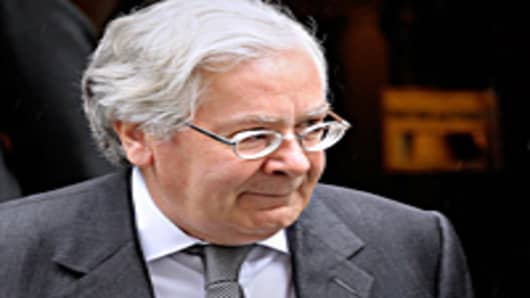The Bank of England left monetary policy unchanged on Thursday as expected, voting as it did last month not to buy more government bonds and pump money into Britain's stagnant economy.
The decision comes despite finance minister George Osborne saying on Wednesday that Britain's economy would grow much more slowly than expected over the next three years and that a key debt reduction goal would not be met.
The forecasts also showed Britain's economy was likely to shrink over the last three months of 2012 - a prospect reinforced by weak trade data earlier on Thursday and downbeat purchasing managers' surveys this week.
After a two-day meeting, the BoE's nine-member Monetary Policy Committee said its main interest rate would stay at a record-low 0.5 percent and it would not add to the 375 billion pounds ($603 billion) of bonds it has bought so far.
None of the 66 economists polled by Reuters last week had expected a change in interest rates or in the BoE's bond buying total.
Last month's decision not to loosen monetary policy further was driven by an unexpectedly big jump in inflation in October to 2.7 percent, as well as a government decision to take back gilt interest paid to the BoE, which was tantamount to about 35 billion pounds of extra asset purchases.
Consumer price inflation has been above the BoE's 2 percent target since December 2009.
Economists are roughly split on whether the BoE will restart asset purchases in future. However, any restart is not expected before February at the earliest, when the BoE publishes its next quarterly economic update.


